Will Catherine Samba-Panza, the elected interim president of the Central African Republic (CAR), manage to stop the bloodshed between Christians and Muslims, and bring peace and reconciliation to her country, before 2015, when the next presidential elections are scheduled?
Africans give their perspectives.
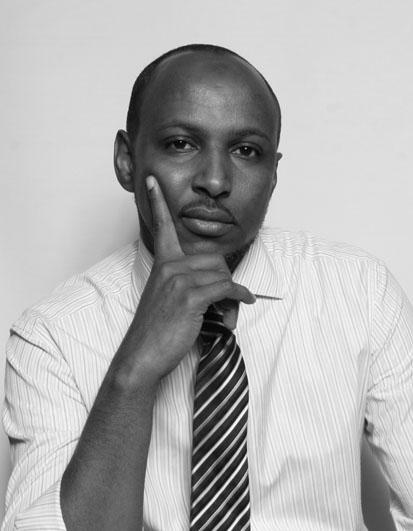
Farhan Hassan, 39, freelance researcher, from Somalia, based in London
Whether Samba-Panza has what it takes is not certainly the issue. Rather the current CAR’s political debate should be asking whether all stakeholders’ particularly Muslim and Christian brothers and sisters in CAR are ready to give peace and reconciliation a chance or not. Inflicting gross pain and stress to one another because of religious affiliation or otherwise is a plain wrong and a seed for atrocity that can lead to genocide.
With the support of all stakeholders, Samba-Panza can sow the seeds of reconciliation such as fairness, justice, mercy, and most importantly restoring law and order in CAR and the region. Peace of CAR is too fractured and the trust between different stakeholders is too crushed. Therefore, without disarms militia and rejecting state where war or terrorizing one another is the norm then there can never be a peace and prosperity in CAR. As result, the important task should be to create atmosphere of trust and harmony in CAR and the region that can not only create absence of violence (negative peace) but also no worries in mind (positive peace) among fellow CAR citizen and beyond.
Without this, unfortunately CAR will be another failed or fragile African state controlled by competing forces and factions. This scenario is not in anyone’s interest.
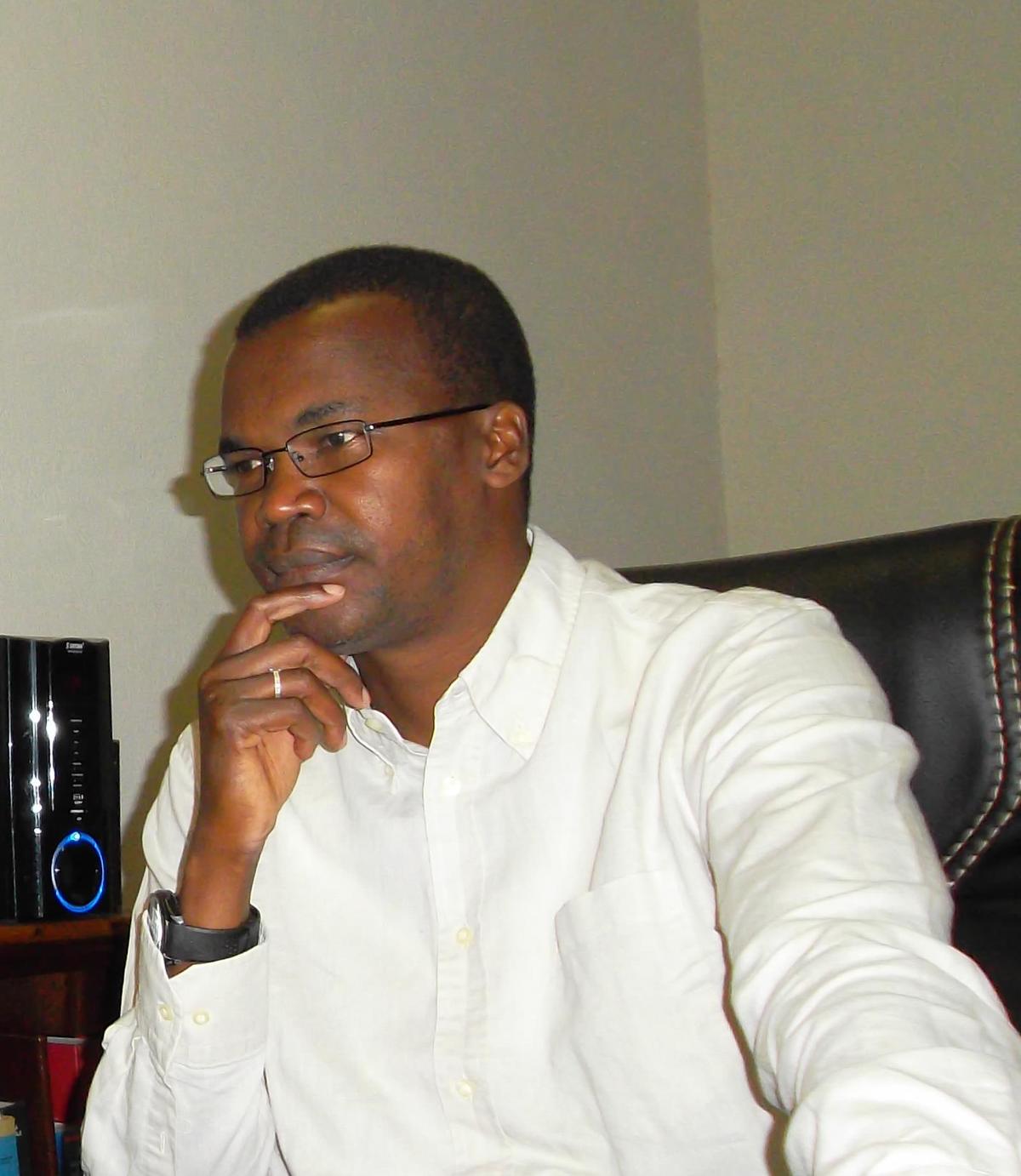
Zoumalde Toussaint Jean Marius, 42, radio station director, based in Bouar, Central African Republic
Catherine Samba-Panza, being a woman who did not participate directly in the management of the country in the past, can bring peace and reconciliation in the country. Why? Simply because the image of woman as a mother who nourishes and protects, remains intact in the collective African consciousness. When there is a problem and women stand to react or protest, men open ears and listen. Male politicians have failed miserably since 1960. So to write a new page in the history of CAR, a female figure must be chosen for the transition. She was chosen not only for her business skills, but also because there was a lobbying wanted to turn the page of the history of CAR’s politics.
Her greatest advantage is that she is not part of the corrupt political landscape of CAR, so she does not have her hands tied. Thus, she will make decisions for the common good. For example, she just asked ex-FACA [the country’s military] to return to their barracks for the multinational forces will need their support in terms of knowledge on the ground. If she wants to succeed in managing the transition, she should have a certain degree of intransigence in the manner of the Roman dictators in times of crisis. She has an extremely short time and her success will depend on how she will manage it.
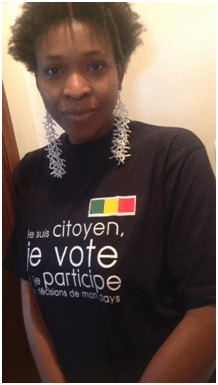
Habibatou Gologo, 41, journalist and blogger, based in Dakar, Senegal
Catherine Samba-Panza is a consensual choice after all the atrocities committed in CAR and experienced by people whose tolerance seems to have been exceeded.
Her choice is also a need to look elsewhere. [color=green]Inevitably, when men fail, they turn to women. They do this in this kind of crisis to heal the wounds, pick up the pieces, and why not, to bamboozle. I say this because Ms. Samba-Panza was highly publicized until her swearing in and until the appointment of a Prime Minister. But not so much afterward.
Being a neutral person, the choice of Catherine Samba-Panza was therefore necessary. She can bring peace and reconciliation because she is not affiliated with any of the groups in the conflict. Her career is also an advantage because she will need all her experience, to be heard by all parties.
Her task will be difficult. To succeed, all actors in the crisis have to decide to terminate it. Central African civil society will also play a big role in identifying evil and proposing solutions for effective and lasting reconciliation.

Anita Grant, 28, lawyer, from Central African Republic, based in Paris
Catherine Samba-Panza has all the weapons to bring peace to Central African Republic. She is the first woman elected head of state of CAR. As a person with Central African origin, I am very proud. In addition, the fact that she is a lawyer made me even happier! She is a model of courage and rigor: after she grew up in Bangui, she studied law in Paris, and in the 1990s chose to return to Bangui although the political and economic situation is not rosy. As a young black woman, she is a fine example of courage and discipline from which many young people must learn to identify and build sustainable projects in Africa. She invests in community life. She is open to national dialogue. All these qualities certainly seduced Central African parliamentarians to vote for her.
Catherine Samba-Panza is a person who has not been affected by the current political crisis. She is a combative and resistant to violence, which I hope will work to stabilize the country. Although achieving stability will take many years, this beginning is nevertheless welcome. Her election gives great hope to the Central African people and diaspora—like me and some of my family in France.
We hope to see better days ahead although violence continues to shake the country. Let me remind you that CAR has never been politically stable during 50 years of independence.
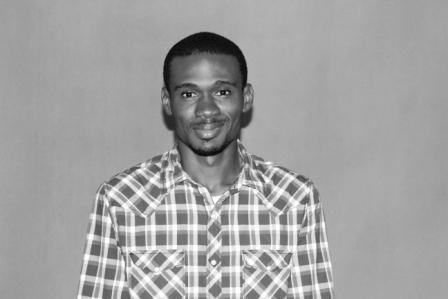
Samuel Okocha, 31, radio news anchor and freelance journalist, based in Lagos, Nigeria
I am optimistic she will bring peace and reconciliation to that country. Her background suggests she is non-partisan. She was born in French Equatorial Africa to a mother from CAR and a Cameroonian father before returning to the country at age 18. Trained as a lawyer in France, she worked as a businesswoman and corporate lawyer before joining politics.
Add her title as a former mayor of the capital Bangui, and I will say she has the credentials and experience to oversee the process of peace and reconciliation in CAR. More importantly, the warring groups respect her.
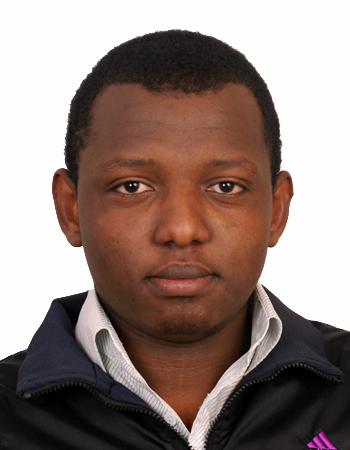
Ahmat Adam, 23, student, from Chad, based in Tianjin, China
It is early to judge if she is able to take CAR to the safe board but let’s go deep and see what both of the sides need to settle down and move on: Seleka who are demanding to be a part of CAR though since long time they have looked at as foreigners or intruders; on the other side are anti- Balaka who have been fighting against Seleka, don’t want to be ruled by Muslims, think Islam is something strange for the CAR culture and accuse any Muslims or conspiring with Seleka.
The main issue here is the hatred and that civilians are afraid of each other, so the election of the new president is a good sign for all the confronted parts because she is Christian first, and then she is well-known in Bangui. She knows what they need to settle down. The main reason she was chosen is because she have been the mayor of Bangui and probably she has some experiences dealing with this sort of conflicts. What CAR needs is a strong ruler bringing back justice and dealing severely with anyone who steals, kills, rapes, and threatens the civil population. She has to set an example to anyone who is thinking of committing a crime.
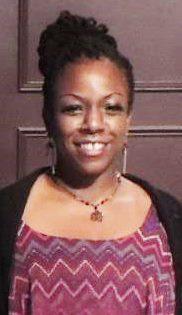
Andrea McCarthy Gibson, 44, tourism project coordinator, from Nigeria, based in Macon, Ga., US
For many in the U.S., the conflict in CAR is either unknown or considered another fight that “those” Africans are fighting “over there”. It is also considered another conflict in another area where developed nations will have to send aid and food to help out once “they” stop fighting. Fortunately, through social and some forms of traditional media, we are able to applaud the efforts towards peace and reconciliation through the election of the first female president in CAR and the third on the continent of Africa, President Catherine Samba-Panza.
The newly elected interim President, Catherine Samba-Panza is naturally equipped to lead the country to peace and reconciliation simply because she is a woman. Just like a pandemic knows no sovereign borders; peace and reconciliation can also spread throughout the region given the implementation of the right strategy. In the case of CAR, a regional approach to peace and reconciliation is necessary. With the constant migration of refugees due to various conflicts in bordering states, successful peace strategies would have to focus on the entire region.
It won’t be an easy task. The newly elected interim President definitely has her work cut out for her. Similar to the election of President Barack Obama, although a different set of challenges, the people voted for change and for someone to fix a colossal mess. President Samba-Panza has the ability address the man-made political, economic and humanitarian conflicts and press forward toward peace in a nurturing and motherly fashion.
For many in CAR and beyond, the question that remains to be answered continues to be unanswered. What is the basis of the conflict in the Central African Republic and the bordering regions? Why have these former French colonies suffered so much for so long? Deeper research would probably reveal that this most recent crisis had absolutely nothing to do with Christian–Muslim discrepancies. Some even believe the answer is in plain sight. Others have even eluded to the fact that many of Africa’s conflicts can be traced directly to common sources.
If this is the case, then the newly elected President should make it a priority to understand the political inner-workings and all of the stakeholders that have an interest in CAR; with a particular focus on those that do not have an interest in the citizens of CAR. A very clear definition of the problem is mandatory and should begin with historical facts and truths. I believe that the new President has the ability to usher in positive change and lay the foundation for the 2015 elections.
President Samba-Panza definitely has what it takes. Not only does she have the confidence of her people, but she has the confidence of the international community as well. From a peace and reconciliation standpoint, the amazing works of Nyeko Caesar Poblicks and the non-profit organization, Conciliation Resources, the efforts of NGOs, and other local CAR grassroots organizations could provide a framework for learning and implementing best practices gleaned from other post-conflict areas. From an economic and sustainability standpoint, her strategy would need to focus on: good governance, long-term growth and sustainability through access to trade. This would include a commitment to education, infrastructure and building the capacity of women. Another high priority should include establishing trade routes instead of infinite pipelines for humanitarian aid. People that trade with each other, typically don’t fight with each other.
Could it be this easy? Much prayer, support and a clear identification of the problems to be fixed; namely, those malevolent forces (whether they be large or small) are needed to finally address the generations-long conflicts in this region. I am optimistic that interim President Catherine Samba-Panza can handle it. Why wouldn’t she be able to? She’s a woman.
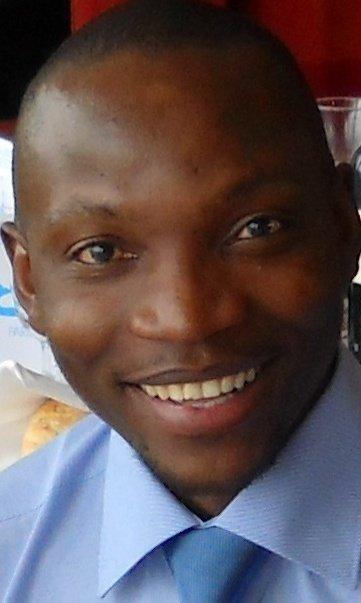
Masimba Biriwasha, 38, blogger, from Zimbabwe, based in Washington, D.C.
Expectations for peace and reconciliation in CAR shot up after the appointment of Catherine Samba-Panza as the new interim president, the first female leader of the CAR, and the third in Africa, on Jan. 23.
Symbolically, her appointment is a powerful statement of CAR’s intention to stop the bloodshed, which has torn apart the country. Part of Ms. Samba-Panza appeal is that she did not abandon Bangui, the country’s capital city, at the height of the violence. As a result, she has been dubbed “mother-courage” and the days ahead will tell whether she is up to the huge task of fostering the much needed hope in CAR to stop it from descending into an “anarchy, a non-state” as surmised by its former Prime Minister Nicolas Tiangaye.
After months of carnage, Ms. Samba-Panza provides a sense of hope for the beleaguered country. But much work remains to be done. According to the Economist, as Mrs Samba-Panza was being sworn in, gunshots rang out across the capital and violent exchanges continued in the suburbs, leaving at least 16 dead.
Almost one million people, or a quarter of the population, have been displaced by fighting that began when the mainly Muslim Seleka rebels seized power in the majority Christian former French colony in March.
Ms. Samba-Panza is Christian, so is Andre Nzapayeke who was named as the new Prime Minister. There are fears that political leaders loyal to the former president could scuttle peace efforts if they feel left out. And that the presence of Christian leaders could add fuel to the ongoing reprisals against Muslims in the country.
To succeed in bringing her country together, Ms. Samba-Panza will have to immediately put an end to the wanton killings. Her first major priority is to stem the bloodshed, ensuring safety for the entire population. If she is seen to favor Christians over Muslims, her efforts will only inflame the already volatile situation.
Ms. Samba-Panza will have to implement a disarmament program for Christian and Muslim militias. But, more importantly, she has to ensure humanitarian access to the millions of people that have been displaced by the violence.
A full, prompt and impartial investigation into the killings will be required to ensure that victims and their families receive justice and that lessons can be learned in order to stop a repeat of the violence in the future. Stopping the violence, lawlessness, and impunity will be key. Strengthening the rule of law and accountability will give the citizens of CAR confidence that their country is moving out of the morass of bloodshed.
Ultimately, a political settlement will bring the much needed stability to CAR. Ms. Samba-Panza is only president for a year as elections will be held by January 2015. But what she will do between now and then will be key to the future trajectory of the country. In the absence of a political settlement, the nation of CAR will continue down the road of further disintegration and decline. And it’s not what Africa needs today.

Mamadou Ndiaye, 27, blogger, based in Dakar, Senegal
Ms. Samba-Panza, a lady, pretty independent spirit and former mayor of Bangui. She is the best placed person at this stage of crisis to reconcile and bring solutions. She is a woman of values and fought throughout her life, and it is always difficult in Africa a woman to pierce through levels.
I think she has all it takes to find ways of political and physical reconstruction of her country. What she has built today, is an image of consensus. She was chosen based on her participation in several forums of national reconciliation. She has high education and enough luggage of leadership to take the country out of the abyss. She owns the assets to provide concrete answers to the humanitarian crisis in CAR.
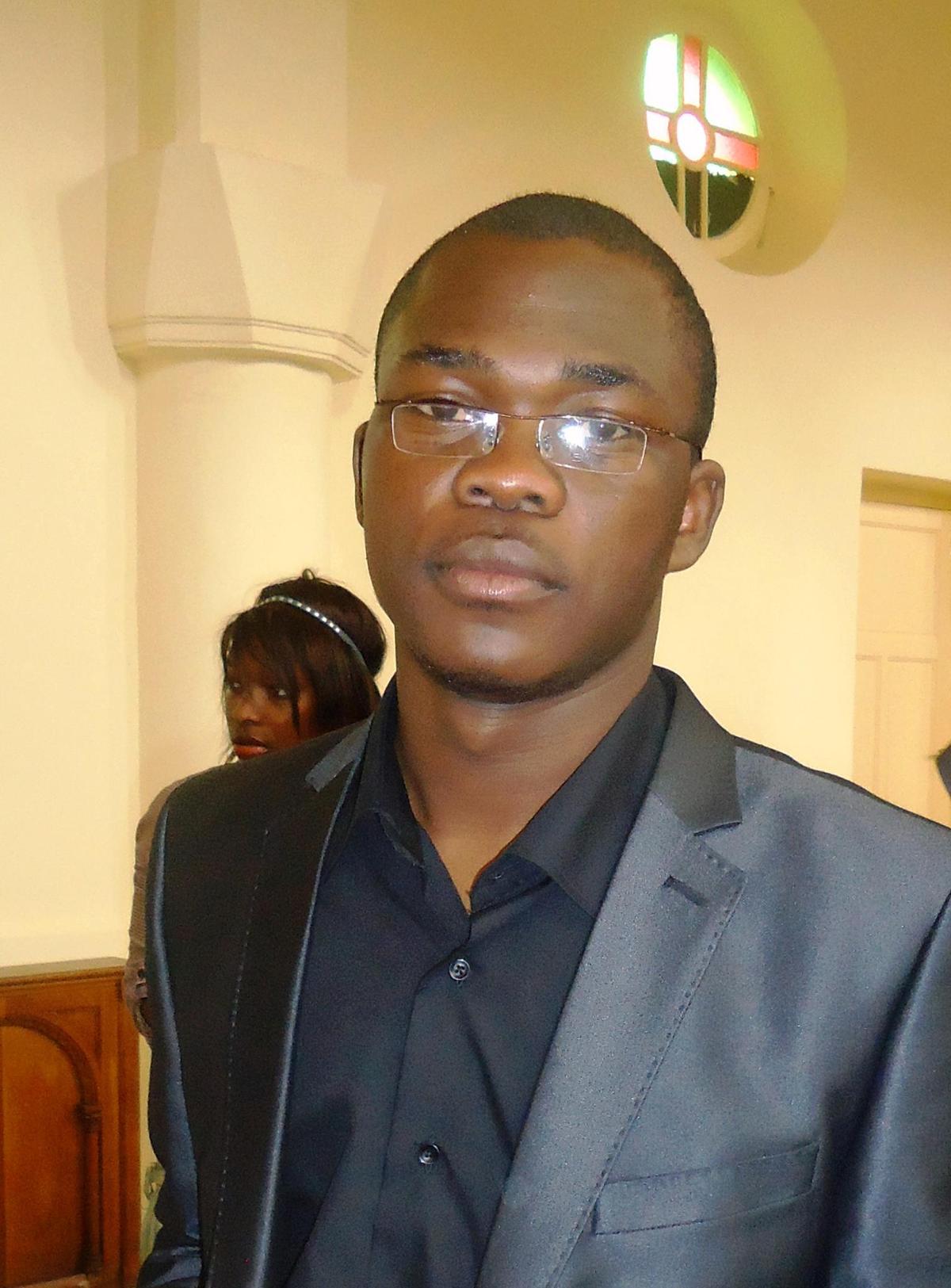
Maixender Nganare, 22, student, from Central African Republic, based in Oujda, Morocco
Catherine Samba-Panza can do better: first, she is a woman of dialogue as she was in the past one of the organizers of large inclusive political dialogue that took place in December 2008 involving all political entities of the time, second, she is neutral with respect to the current crisis in CAR, third, the reason why she was chosen to lead this transition is that she is a woman of character who has determination, she has to prove her determination by choosing a neutral technocrat Prime Minister. Her advantage is that she is a woman; she has the support of the entire population of all political entities and also enjoys the support of the international community.
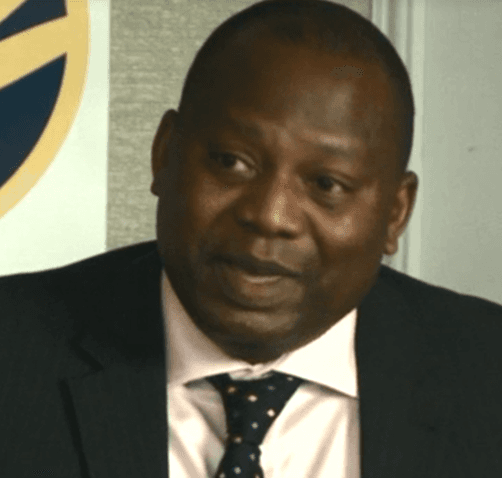
Ben Omoakin Oguntala, 40, business consultant, from Nigeria, based in London
Even though I am pleased that President Samba-Panza has been selected to be the leader, I cannot help but think that there is an ulterior motive to her selection. This is because this is one region that has not always promoted equality of women. This leads me to believe that she is being used as the better of two extremes.
This makes me think that she may not have depth of power or conviction to make a change in an area that has witnessed such deep-rooted hatred and violence. The uniqueness a female leader would have are absent from her because she may not have wanted or fought for this position.
The key attributes expected of a leader that is determined to make a change are therefore missing, she is going to lack the conviction to rock the boat and address the root cause of the problem. She is also unlikely to have the independence to exercise the maternal instincts of a female leader, to make a difference.
Her experience in politics shows she has not dealt with the crucial political issues sufficient enough to equip her with breadth of experience to handle such deeply divided parties, division lines that need a leader which can break away from the norm, rock the boat and upset a few people for the long-term goal.
Lastly, she is a lawyer and by default will be very risk averse, which means all the attributes require to be creative and innovative in finding a solution are going to be too risky for her to explore.
These are all the skills that are needed to bring peace and reconciliation in the country and region and it is more difficult to see how she possesses any of the skills need to make this happen.
The evidence suggests that an appropriate leader could not be found that pleased all the parties and they opted for a leader that is inherently unable to upset either parties. Her femininity is likely to appeal to both parties as her maternal instinct is unlikely to rock any party’s boat.
Her advantage is therefore the likelihood to hold the cease-fire between the two sides with the hope that the time passes and that would let the tension fizzle out.

Michael Oyakojo, 32, economist, based in Nigeria
The newly interim President of CAR could be instrumental in the restoration of peace and reconciliation to the country and the region, provided that the right things are done objectively, transparently, and professionally without any form of bias. No doubt, she is faced with a difficult task of reconciling and restoring confidence in a war–torn nation divided along religious and political differences.
Interestingly, her emergence as the interim President was accepted by both sides in the conflict—Seleka and Anti-balaka—because she is nonpartisan. The appointment was also supported by the international communities like the African Union and the United Nations. Having being involved in politics since 2003 and having participated in several mediation processes, it appears she has the necessary skills and experience to champion the dialogue, reconciliation process, and to lead the nation to general election in 2015.
To make meaningful impacts, there is need for objective appraisal of current situation, with a view to identify the root causes of the conflict. Outcomes of this exercise would be important in providing recommendations for sustainable solutions. Conflicting parties would have to dialogue and ceasefire for peace to be restored. Disarmament and reintegration of the militants into the society would then follow. Then, the interim President would need to build institutions and restore functioning government to CAR. Although, these tasks would take a long time to be achieved, in the meantime, the actions of President Samba-Panza would set the foundation for the restoration of peace, reconciliation, and development in CAR.
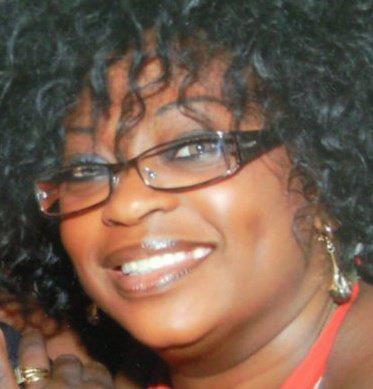
Winnie Ewango-Pirioua, 44, customer manager at HUMANIS, social protection group, from Central African Republic, based in Paris
Everybody hopes that the respect to women, being the symbol of the mother in the African tradition, will help her to communicate with and be heard especially by the armed groups that spread death across the country and plunged it into chaos!
The great difficulty is disarmament. We see the limits of the French presence as their staff too small; they operate only in the capital and still have not managed to restore calm in some very hot areas of Bangui. At the same time, outside the capital the towns are torn by extreme violence clashes. The President must stand firm against these criminals and organize their transition to justice. Reconciliation will necessarily entail the end of impunity, punishment and justice.
Very big challenges await Samba-Panza: the support of the international community and the choice of the Prime Minister should pulsate to success but the path will be long and difficult, because the rupture in Central African society is complete.
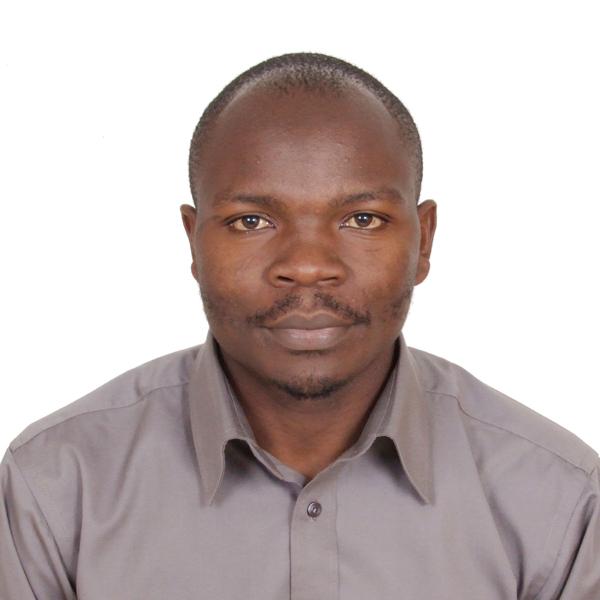
Mark Kapchanga, 30, journalist and doctoral candidate, based in Nairobi, Kenya
The road ahead for Catherine Samba-Panza as the elected interim president of the Central Africa Republic may be rough and long. Bringing the two warring factions—the Muslim Seleka fighters and the Christian anti-balaka militias is a tough job. Her first and urgent assignment is to unite the two groups. It is very encouraging that in her speech, she used the motherly word like “my children” to appeal for peace in the country. More importantly, she urged the warring parties to lay down their arms and focus on rebuilding “our fatherland”. These are strong words in the African setting that would certainly have positive impact in CAR. To corroborate her beseeching words, Samba-Panza is seen as a non-partisan leader for she never belonged to the Seleka Group that ousted Francois Bozize.
This is indeed the case in most parts of Bangui where residents and the business community have shown their total support for the trained lawyer. As she seeks to rebuild the nation by bringing back the refugees, it is important that she doesn’t behave like typical Africa leaders who tend to be skewed with government appointments, based on one’s religion, ethnicity or gender. She should take her time and come up with an all-inclusive leadership that will be a true representation of the country’s diversity.
It is sometimes difficult for women leaders to lead in a continent that is massively gender biased, but the new president must draw lessons from the current Liberia President Ellen Johnson-Sirleaf. The dying African Union must also support the rebuilding of the nation both financially and technically. It should not just sit and watch as has been the case with South Sudan. That way, the region will enjoy some stability.
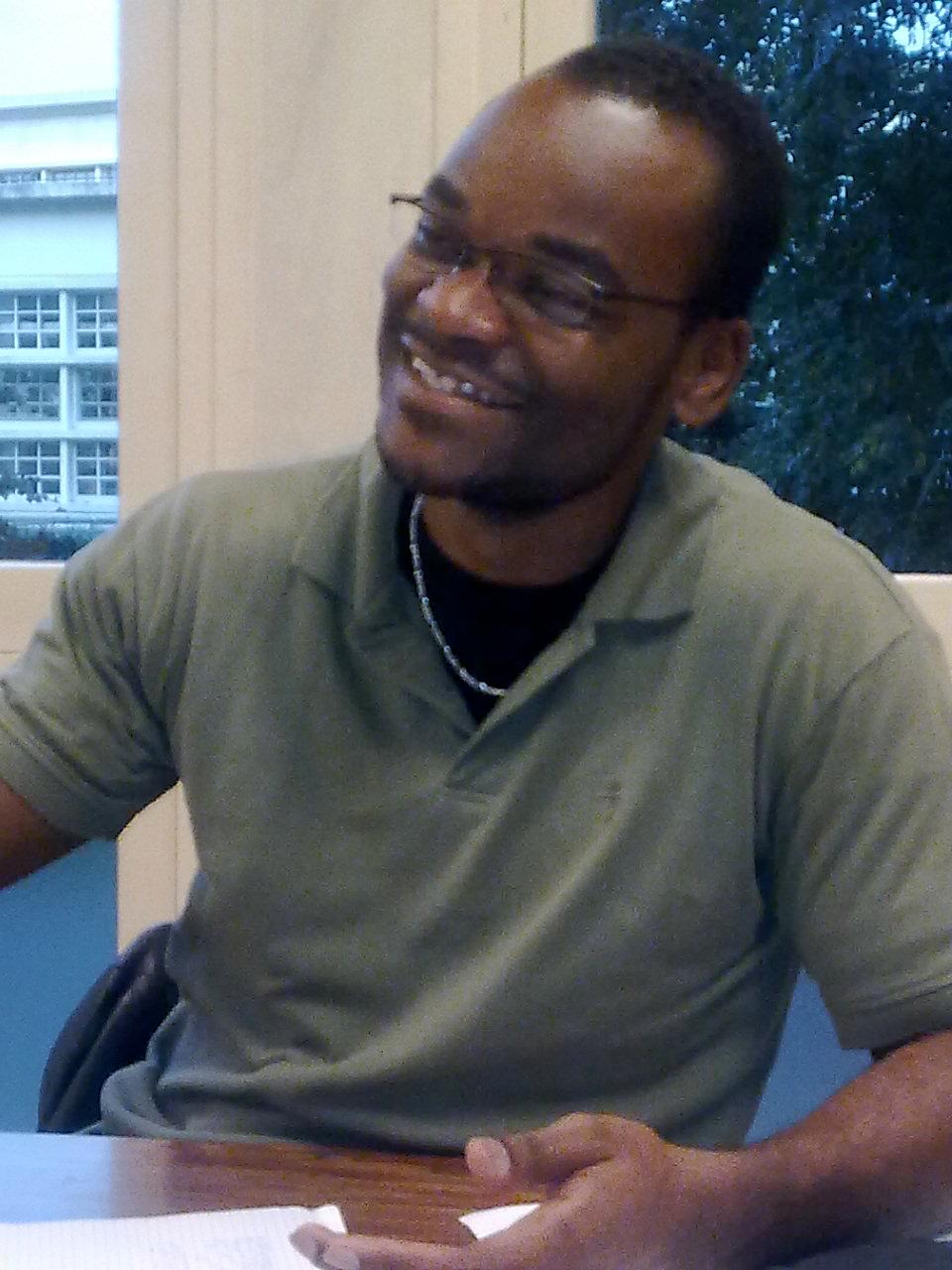
Olivier Limanya, 36, democracy activist, Congolese, based Paris
Catherine Samba-Panza was elected as interim president of CAR by the same guys who elected the last one, Djotodia. The first difference is she is a Christian [Djotodia is Muslim], as are 80 percent of people in CAR; also, her election was approved by those who wanted to get out Bozize, or who didn’t help him to stay in the head of the country (Sassou Nguesso, president of Congo and Idriss Deby, president of Chad. Both of them acting with the agreement of France, former colonial power.) As it is in many countries in Africa, the power belongs to whom got the military power. She has got strategic allies and the people (Christians) in her back. Then, she has to talk to the entire CAR people and restore the unity between Christians and Muslims, and between pro-Bozize and pro-Seleka.
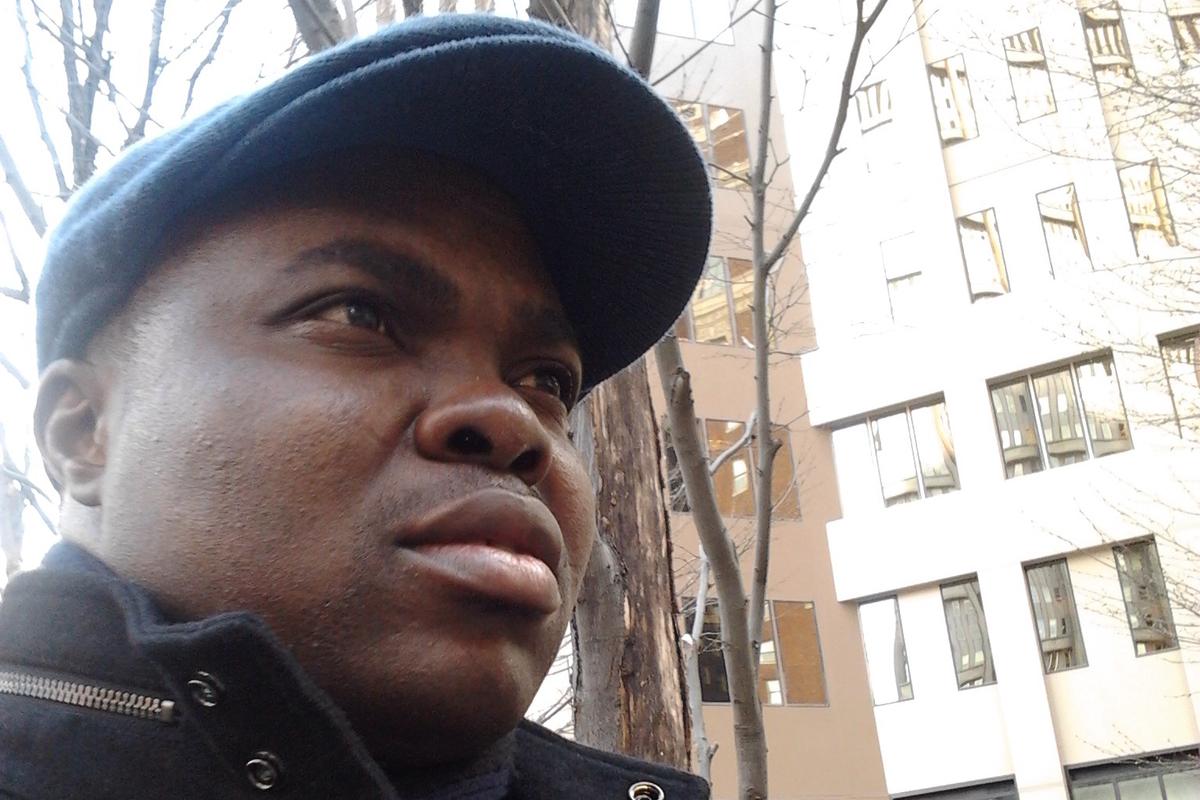
Charles Lebon, 30, blogger, from Togo, based in Pittsburgh, Pa., US
We have witnessed a major political crisis in CAR, which is reminiscent of Rwanda’s crisis of 1994. The rebel military intervention to remove President Bozize from power quickly turned into a nightmare for the population. Chaos and a deeply divided country are what Catherine Samba-Panza, the newly elected interim president of the CAR, inherited from her predecessors Bozize and Djotodjia. Her first duty should be to heal this wounded country by bringing real peace and true reconciliation. This mission seems to be very difficult and requires a particular personality. The fact that she is not affiliated with the parties involved in the crisis makes her far and away the best person for handing the gentle process of reconciliation. She clearly showed in her first statement after being elected that she understands her mission: bring peace and reconcile her nation, and take advantage of her status as a woman and mother.
Women in African culture are the key to peace and reconciliation. They are represented in some cultures by the calabash, which is used for bringing water and can be seen as a symbol of peace. In many cultures, it is only women who bring this water and women can have a much greater impact than men in voicing a call for peace. This psychological apprehension of women that is rooted in our culture could help Samba-Panza to succeed at her mission of bringing peace and reconciliation. In addition, the fact that she is Christian but also speaks Arabic well could help to bridge the divide between Christians and Muslims. However, the personality, status and goodwill of Catherine is not enough to reconstruct the Central African Republic. The peace in CAR depends also on internal and external factors. In turn, political leaders need to come together and work with her. Peace in CAR depends also on the stability of the Republic of Chad and the Republic of Sudan and South Sudan.
Catherine Samba-Panza is a gift. She represents a chance for the CAR to overcome this painful moment. She is a woman, a mother who can bring together her children. In order to succeed, she needs the support of not only her compatriots but also Central Africa’s partners. International institutions like the African Union, the United Nations and the European Union need to be involved in the peaceful reconciliation of this beautiful country.
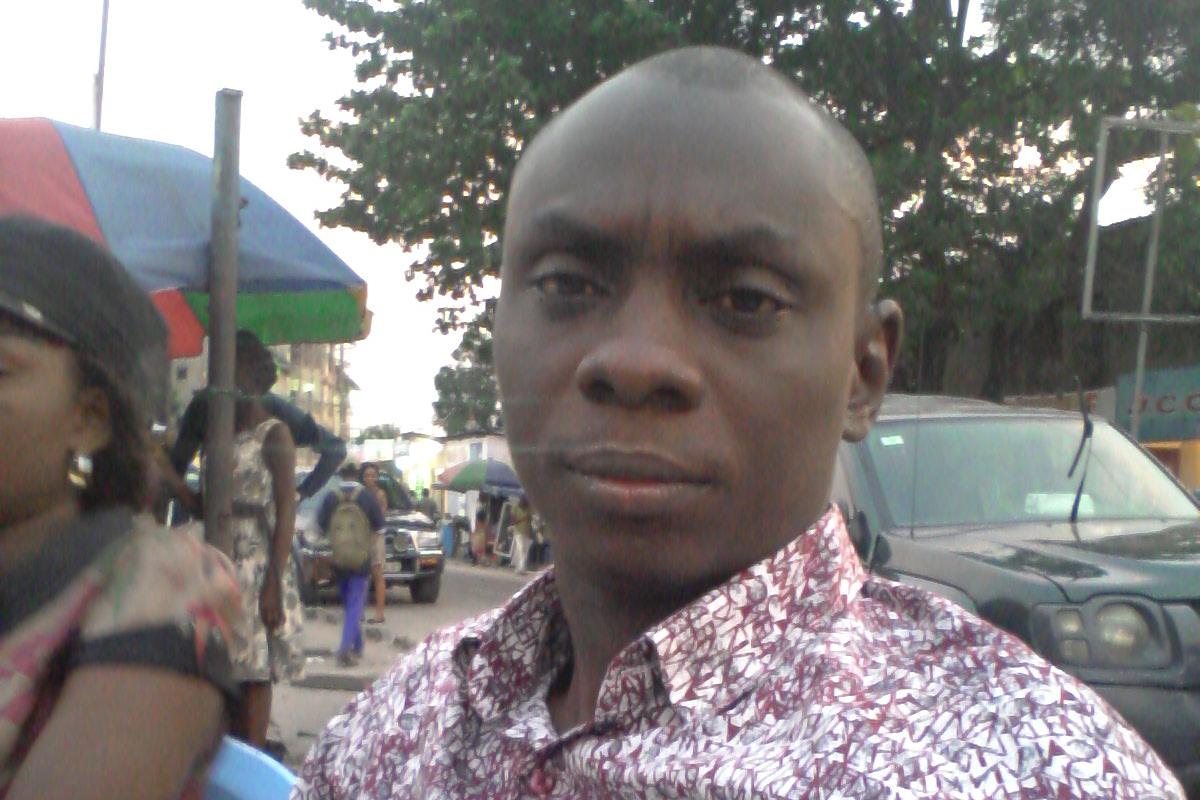
Fanfan Nsumpi, 33, journalist, based in Kinshasa, Democratic Republic of the Congo
The president can happen to master the situation, as it has the support of the international community and especially the central area of Africa. A single anxiety remains the reconciliation of the two communities—Muslim and Christian. We believe that the task facing the new Prime Minister is very delicate—to shape the new government and organize new elections shortly.





